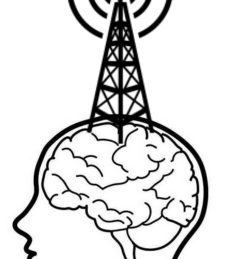Could every neuron be genetically unique?
Years ago I asked what I thought might be a naive question, perhaps on Quora: how do we really know that every cell has the same genome? Was a random sampling of the body conducted? The impression I got was that such a sampling was not conducted, or at least not done regularly and systematically. The main argument for genetic identity was theoretical: the cell division process was well understood (apparently), and the error-correction mechanisms were robust. I was always suspicious of this way of thinking. As Yogi Berra said,
“In theory there is no difference between theory and practice. In practice there is.”
Since then I’ve tried to dive into the nitty-gritty of genetics, and the level of complexity is so staggering that the confidence of theoreticians seemed misplaced. (I wrote a 4 part series on biological information for 3QD, and explored the history of genetics in the process.)
So this article in Scientific American makes a lot of sense to me. Here are some excerpts:
“Accepted dogma holds that—although every cell in the body contains its own DNA—the genetic instructions in each cell nucleus are identical. But new research has now proved this assumption wrong. There are actually several sources of spontaneous mutation in somatic (nonsex) cells, resulting in every individual containing a multitude of genomes—a situation researchers term somatic mosaicism. “The idea is something that 10 years ago would have been science fiction,” says biochemist James Eberwine of the University of Pennsylvania. “We were taught that every cell has the same DNA, but that’s not true.” There are reasons to think somatic mosaicism may be particularly important in the brain, not least because neural genes are very active.”
“Mature neurons stop dividing and are among the longest-living cells in the body, so mutations will stick around in the brain. “In the skin or gut, cells turn over in a month or week so somatic mutations aren’t likely to hang around unless they form cancer,” McConnell says. “These mutations are going to be in your brain forever.” This could alter neural circuits, thereby contributing to the risk of developing neuropsychiatric disorders. ”
“The fact specific genes only explain a small proportion of cases may be because researchers have only been looking in the germ line (sex cells), McConnell says. “Maybe the person doesn’t have the mutation in their germ line, but some percentage of their neurons have it.” Somatic mosaicism may also contribute to neural diversity in general. “It might explain why everybody’s different—it’s not all about the environment or genome. There’s something else,” says neuroscientist Alysson Muotri of the University of California, San Diego, who is not part of the consortium. “As we understand more about somatic mosaicism, I think the contribution to individuality as well as the spectrum [of symptoms] you find in, for example, autism, will become clear.””
Scientists Surprised to Find No Two Neurons Are Genetically Alike

 Here’s an answer I wrote a while ago to the following question:
Here’s an answer I wrote a while ago to the following question: